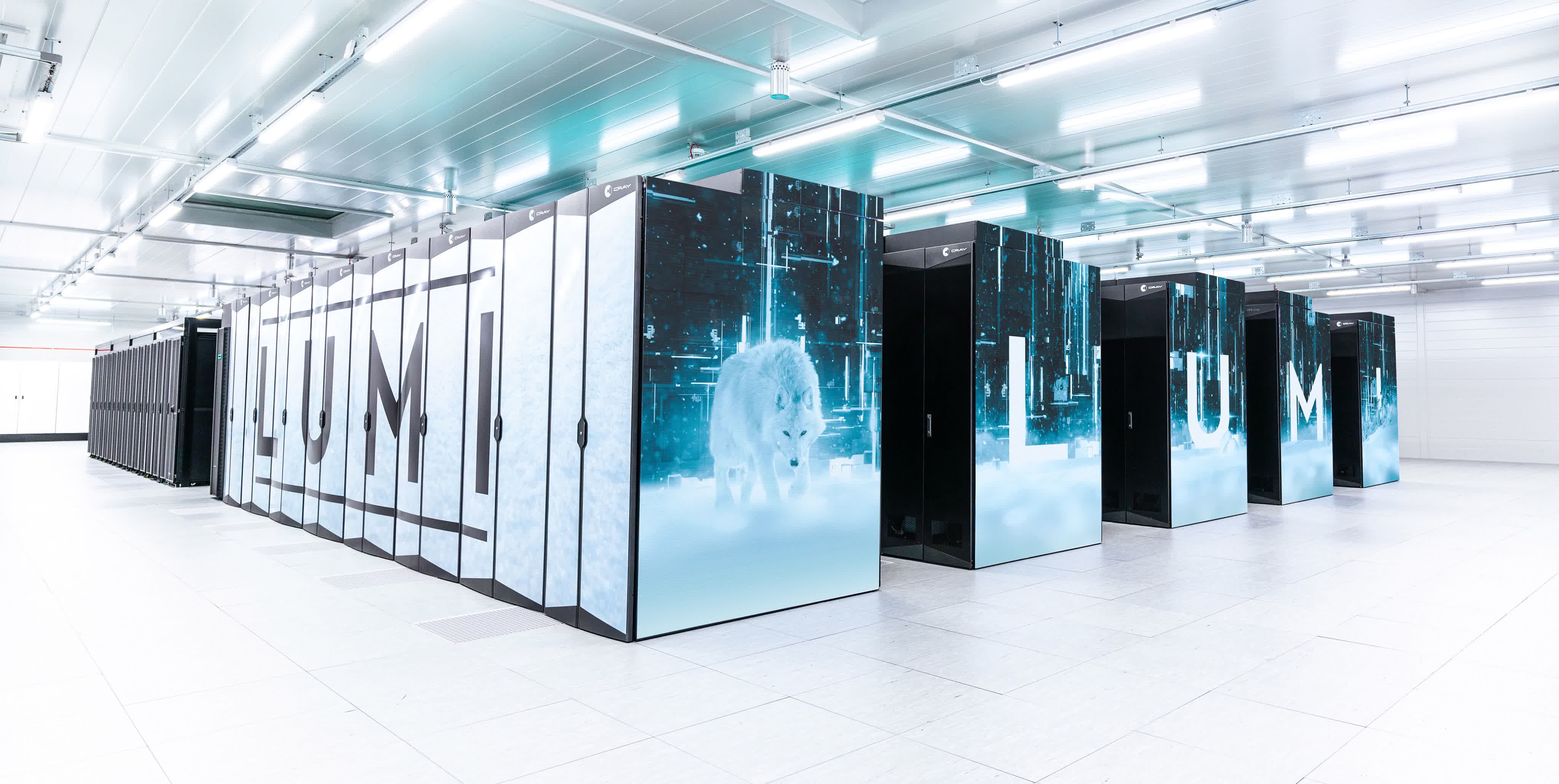Forward-looking: Exascale-class supercomputers will soon achieve unprecedented performance levels, reaching and even exceeding more than one quintillion (one billion billion) operations per second. However, to fully harness this computing power, it's likely that we'll need a radically different approach to software design.

EuroHPC JU, Europe's supercomputer consortium, has just launched a new research initiative called Inno4scale. The project, which starts this month and will run for 21 months, is designed to promote software innovation within the European High-performance Computing (HPC) business.
EuroHPC JU, a joint initiative between the European Union, European countries and private partners to develop a "World Class Supercomputing Ecosystem in Europe," can currently count on 8 different supercomputers installed in different places across the Old Continent. They are all classified as "pre-exascale EuroHPC supercomputers," which means that Brussels is already envisioning new exaflop-class HPC machines akin to the US Aurora super-system.
EuroHPC JU has plans to build two exascale-level supercomputers - one hosted in Germany at the Jülich Supercomputing Centre (JSC) and another one managed by the Jules Verne consortium, a partnership involving France, the Netherlands and other institutions. All these new capabilities will need innovative software algorithms, which is exactly the challenge the Inno4scale will have to answer.

When you can do more than 1 billion billion floating-point calculations per seconds, traditional software routines cannot possibly keep up with data transfers and storage management. That's why Inno4scale will fund new algorithms designed to fully and efficiently exploit exascale supercomputers. EuroHPC JU is providing a €5 million budget through the use of cascade funding, while the Barcelona Supercomputing Center will coordinate project partners.
The increased processing capabilities of exascale and post-exascale hardware architectures require the "complete redesign, reimplementation and reinvention" of software algorithms, EuroHPC JU said in its official press release. Inno4scale partners will accept novel algorithm proposals until September 2023, evaluating them throughout autumn 2023, and finally studying and testing them in 2024 for twelve months.
The most successful algorithms are expected to be adopted by HPC users in academia and industry, Brussels said, hopefully providing "important performance and energy efficiency gains." As HPC pioneer Jack Dongarra said, the enormous power of exascale supercomputers is "fantastic" but it challenges traditional software approach. It's like buying a Ferrari supercar and then driving it at just 2 miles per hour, Dongarra said.